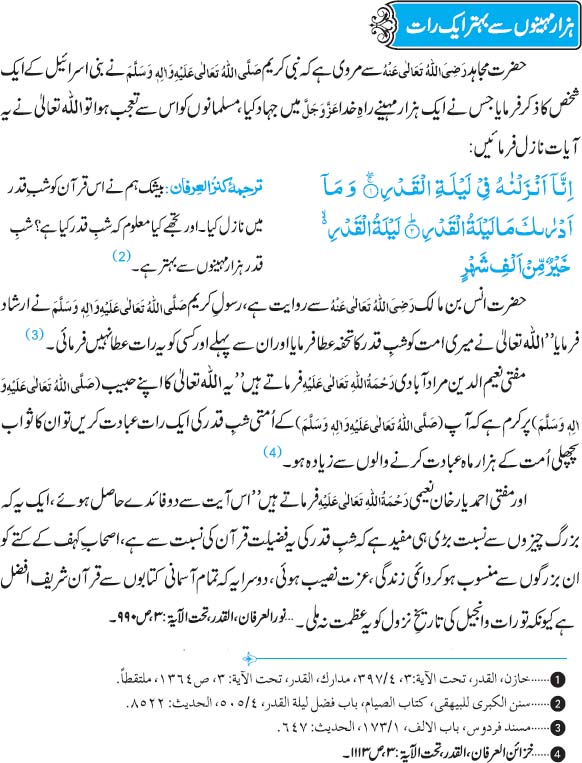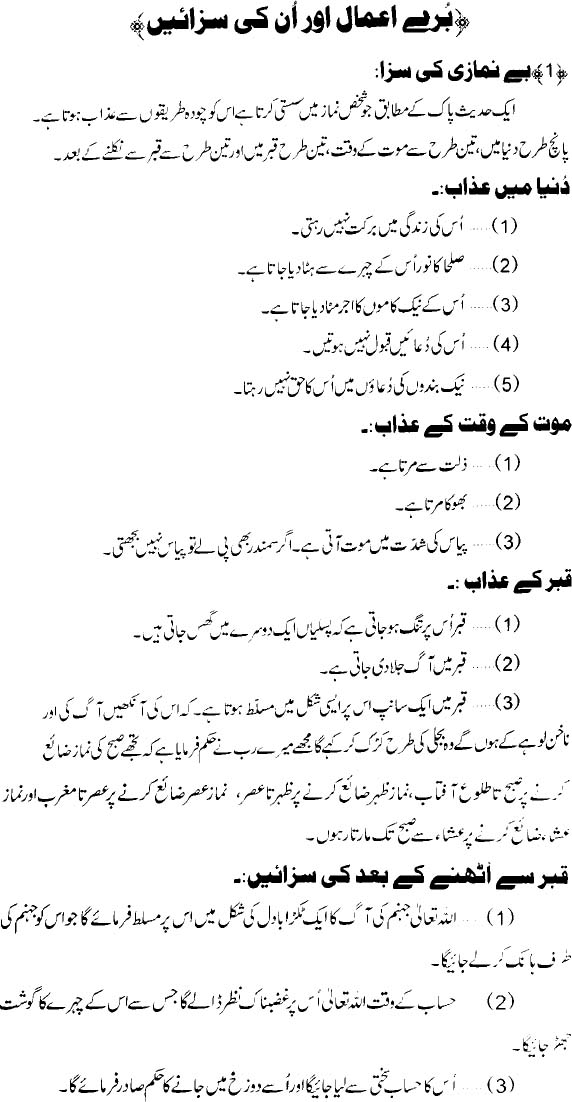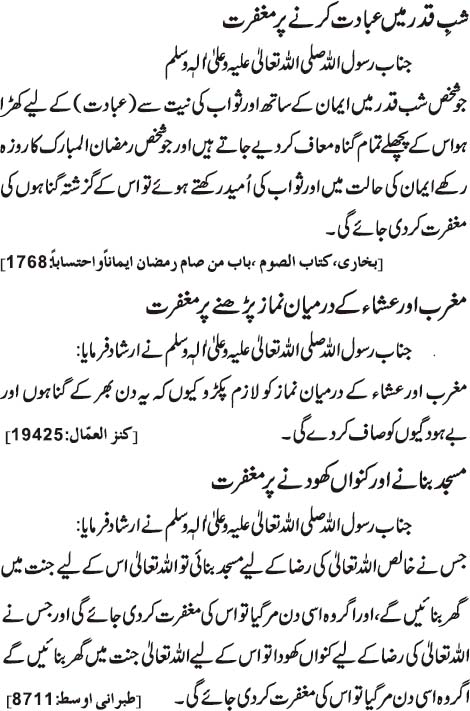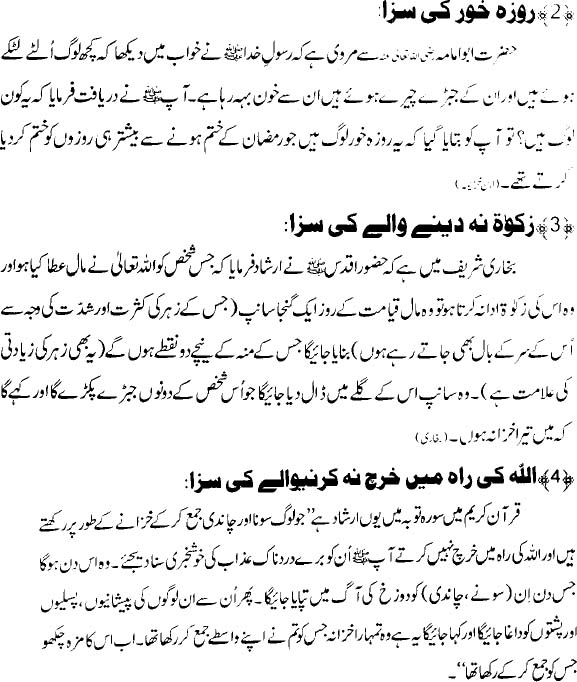
Hazar Maheeno Say Behtar Raat
The Prophet (Peace Be Upon Him) And The Status Of Women
The Prophet (peace be upon him) gave women rights that Western women did not enjoy until centuries later, like the right to own property independently of her husband
Recently, we have witnessed instances of the horrific treatment of women around the world.
In the time of Prophet Muhammad (peace be upon him), similar cruel practices were enacted by his society, and he opposed all such forms of oppressing women.
Indeed, at the sight of a tragedy of any human being, Prophet Muhammad’s (peace be upon him) heart would be saddened, and his eyes would flow with tears.
One of the most spectacular examples of this is the following story, which concerns the practice of shunning daughters.
Prophet Muhammad (peace be upon him) was born in a society where women had been subjected to much violence, which often took the form of female infanticide. Daughters were considered a burden, and getting rid of them was sometimes considered a necessity, which they did most violently: by burying them alive!
Prophet Muhammad (peace be upon him) was very kind and polite toward women. At a time when they were treated very badly, the Prophet (peace be upon him) gave women honor and dignity equal to men.
- February, 28
- 34
- Prophet Character
- More
Buray Aamaal Aur Unn Ki Sazaien

Buray Aamaal Aur Unn Ki Sazaien
Humbleness: importance And Significance
Humbleness is to know the value of oneself, to avoid pride, or disregard the truth, and to underestimate people. As the Prophet sallallahu alaihi wa sallam (may the peace and blessings of Allah be upon him) said, according to Muslim and others, “Al-Kibr (pride) is rejecting the truth and looking down upon people” [Muslim, Tirmidhi, and Abu Dawud].
Humbleness is for one who is significant and fears gaining notoriety or becoming too great among people. As it was said, “Humble yourself, you will be as a glimmering star to the viewer on the surface of the water, even if it is lofty.” We don’t say to an ordinary person, “Humble yourself.” But it is said to him, “Know the value of yourself, and do not place it in the wrong place!”
It was narrated by al-Khattabi in al-Uzlah that Imaam Abdullah bin al-Mubaarak came to Khuraassaan [in Persia] and went to a person who was known for his zuhd and wara’ [asceticism and cautiousness in piety], so when he entered where the man was, he (the man) did not turn around nor give him any consideration at all.
Maghfirat Wale Aamaal

Maghfirat Wale Aamaal
How To Clear All The Confusion
Alhamdulillaah, nowadays there’s access to Islamic knowledge like never before. All it takes is a click of the mouse or a simple phone call, and one can gain access to a variety of articles, e-books, and fatwas from the shuyookh. One can also watch videos and listen to lectures from all over the world, simply by sitting at home. And as for the emails, we see plenty of those filling our inbox, from people you know and even people you don’t know, educating us on our Deen. But then, along with all of that, also comes a lot of confusion.
Confusion???
Yes…. Confusion.
That’s because everyone is talking about their version of Islam, their comprehension of how everything should be. Every group is interpreting the texts of the Quran and Sunnah according to its own understanding. One group promotes a certain belief, saying how good it is, while another group considers the very same belief to be totally wrong.
Ramadan al Kareem Ki Baharien

Ramadan al Kareem Ki Baharien
The Necessity To Love The Beloved Prophet [Peace and Blessings of Allah be Upon Him]
Allah SubHanuhu wa Ta’ala says in the Holy Qur’an, “If your fathers, and your sons, and your brothers, and your wives, and your tribe, and your acquired wealth, and the trade in which you fear a loss, and the houses of your liking – if all these are dearer to you than Allah and His Noble Messenger and fighting in His way, then wait until Allah brings about His command; and Allah does not guide the sinful.” [Surah Tauba: 24]
This verse demonstrates encouragement, advice, proof, and an indication of the necessity to love Prophet Muhammad (SallAllaho Alaihi wa Sallam). It is also sufficient to prove that this duty is of tremendous proportion. It is an obligation and the right of the Prophet, SallAllaho Alaihi wa Sallam.
You will have observed how Allah SubHanuhu wa Ta’ala reprimands those whose love of relatives and property is dearer to them than Allah and His Messenger, SallAllaho Alaihi wa Sallam. Allah SubHanuhu wa Ta’ala concludes His warning with the threatening words, “then wait until Allah shall bring His command.” And from this it is understood that those whose love is other than for Allah and His Messenger SallAllaho Alaihi wa Sallam, are astray and are not guided by Allah.
Roza Khor, Zakat Na Dene Wale, Aur Allah Ki Rah Mein Kharch Na Kerne Waley Ki Saza

Roza Khor, Zakat Na Dene Wale, Aur Allah Ki Rah Mein Kharch Na Kerne Waley Ki Saza
Blossom Of The Youth: An Eye Opener
Following is an Eye Opener Preface of the famous Book “Bahar-e-Shabab” by Hadrat Allama Mawlana Shaykh Abd al-Aleem Siddiqui Qadiri Meerathi (Khalifa of Sayyiduna AlaHadrat Imam Ahmad Rida Khan Qadiri) written with extreme sincerity and honest concern towards the youth of the entire Islamic Ummah. A must must must read the Book and especially the Preface! Hope you will read it yourself and share it with your contacts as well…
Jazak ALLAH in Anticipation!
ALLAH SubHanuhu wa Ta’ala has blessed humankind with numerous powers, and His (SubHanuhu wa Ta’ala) Wisdom has equipped man with the knowledge of using it. Although the Creator has given such knowledge to animals, there is a unique difference between humans and animals. Since humankind is the highest order of creation, the Creator has therefore blessed it with a special faculty of knowledge that makes it superior to other creations. ALLAH has equipped human beings to use this knowledge creatively and also enhance it tremendously. Such an ability is not found in the animal kingdom.

